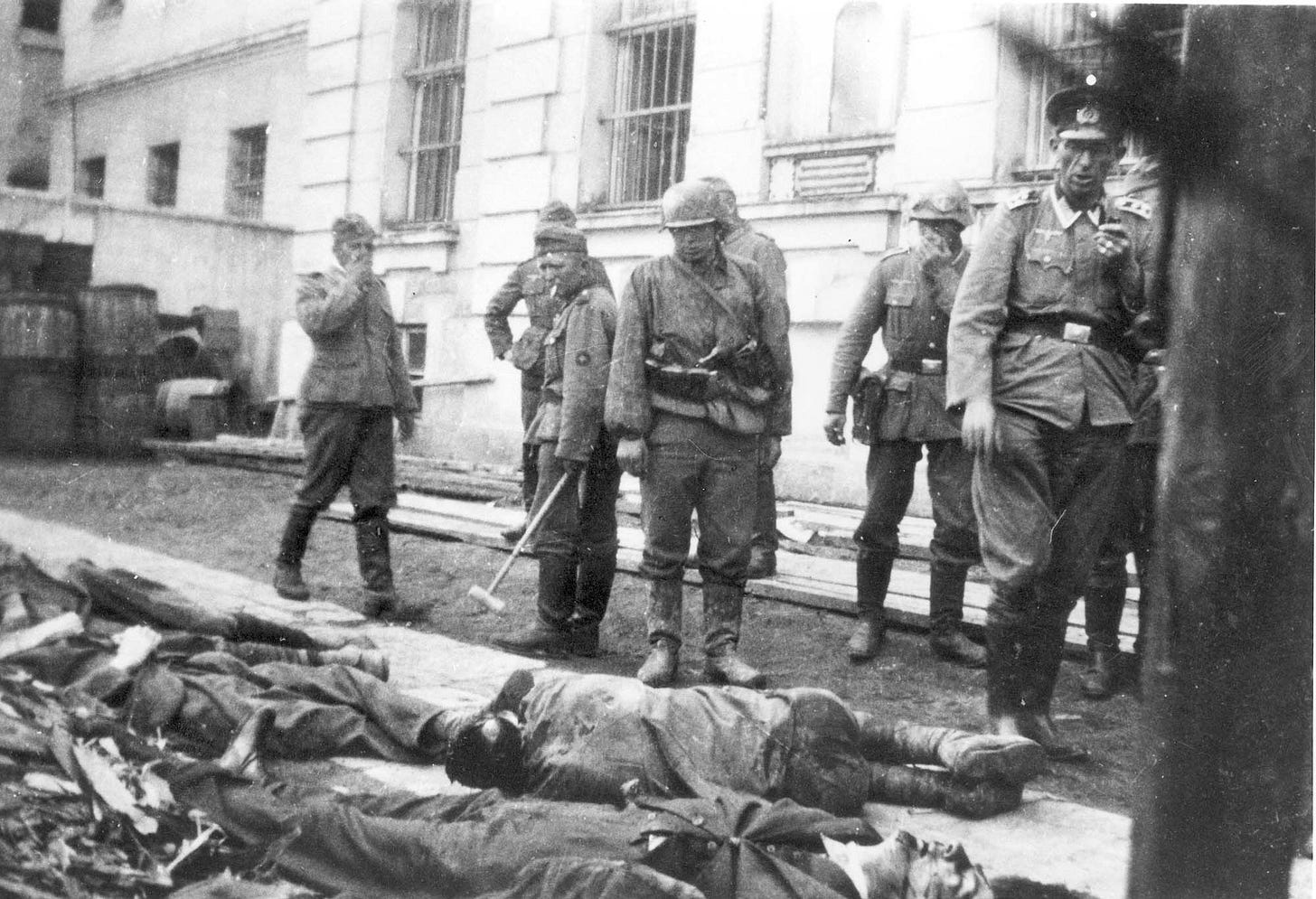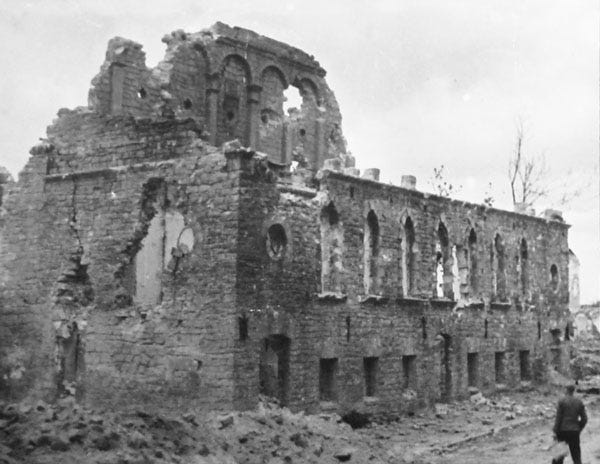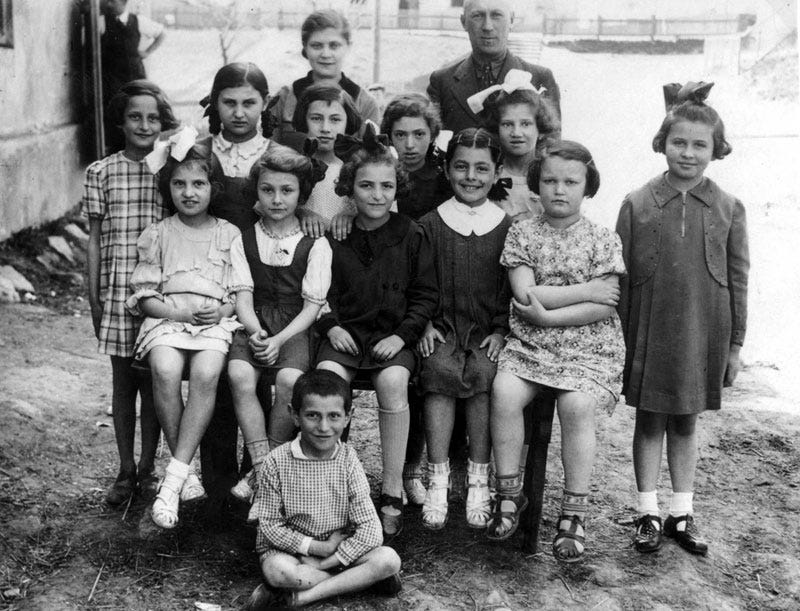Last letters from a Polish ghetto
26th April 1943: An unknown Holocaust victim leaves a letter for posterity as she awaits her murder

The battle surrounding the closing of the Warsaw ghetto, and the accompanying pictures taken by the Germans, has ensured that it is well remembered. Yet at the same time, similar actions were taking place all over what was then eastern Poland. All of the Jews from the surrounding countryside had been brought into the major towns and kept segregated in ghettoes during 1941 and 1942.
Before I leave this world, I want to leave behind a few lines to you, my loved ones. When this letter reaches you one day, I myself will no longer be there, nor will any of us. Our end is drawing near. One feels it, one knows it.

.

Starvation and disease had killed tens of thousands. Hundreds of thousands had been sent by cattle wagon to be murdered in the extermination 'camps'. But many thousands more remained - and for most there was no possibility of putting up any form of resistance.
As the Nazis accelerated the liquidation of the ghettos of Eastern Europe, they no longer resorted to subterfuge. It was now clear to all the ghetto residents that they were going to be killed. There was no possibility of escape. The details of how they would meet their end were well-known. Yet a desperate hope to somehow survive continued to the end.
In Petrikow it looks like this: before the grave one is stripped naked, then forced to kneel down and wait for the shot. The victims stand in line and await their turn.
These letters were left behind by a young woman in the city of Tarnopol1. Little more is known about her or when she finally met her end. Her letters speak for themselves:
Tarnopol 7 April 1943.
Before I leave this world, I want to leave behind a few lines to you, my loved ones. When this letter reaches you one day, I myself will no longer be there, nor will any of us. Our end is drawing near. One feels it, one knows it. Just like the innocent, defenceless Jews already executed, we are all condemned to death. In the very near future it will be our turn, as the small remainder left over from the mass murders. There is no way for us to escape this horrible, ghastly death.
At the very beginning (in June 1941) some 5000 men were killed, among them my husband. After six weeks, following a five-day search between the corpses, I found his body...
Since that day, life has ceased for me. Not even in my girlish dreams could I once have wished for a better and more faithful companion. I was only granted two years and two months of happiness. And now? Tired from so much searching among the bodies, one was 'glad' to have found his as well; are there words in which to express these torments?
Why can we not cry, why can we not defend ourselves? How can one see so much innocent blood flow and say nothing, do nothing and await the same death oneself? We are compelled to go under so miserably, so pitilessly...
Tarnopol 26 April 1943.
I am still alive and I want to describe to you what happened from the 7th to this day. Now then, it is told that everyone's turn comes up next. Galicia should be totally rid of Jews. After all, the ghetto is to be liquidated by the 1st of May. During the last days thousands have been shot. Meeting point was in our camp. Here the human victims are selected.
In Petrikow it looks like this: before the grave one is stripped naked, then forced to kneel down and wait for the shot. The victims stand in line and await their turn. Moreover, they have to sort the first, the executed, in their graves so that the space is used well and order prevails. The entire procedure does not take long. In half an hour the clothes of the executed return to the camp.
After the actions the Jewish council received a bill for 30,000 Zloty to pay for used bullets...
Why can we not cry, why can we not defend ourselves? How can one see so much innocent blood flow and say nothing, do nothing and await the same death oneself? We are compelled to go under so miserably, so pitilessly...
Do you think we want to end this way, die this way? No! No! Despite all these experiences. The urge for self-preservation has now often become greater, the will to live stronger, the closer death is. It is beyond comprehension.
Tarnopol is now a city in the Ukraine. In 1939 it lay in the province of Lvov, in Poland and was home to 18,000 Jews, about 50% of the whole population. Only around 150 Jews survived the war in hiding.
In the Name of the People: Perpetrators of Genocide in the Reflection of Their Post-War Prosecution in West Germany - 'Euthanasia' and Aktion Reinhard Trial Cases. Edited by Dick de Mildt

